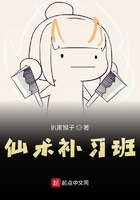THE RIGHTS OF WOMEN.
We all know that the subject which appears above as the title of this chapter is a very favorite subject in America. It is, I hope, a very favorite subject here also, and I am inclined to think has been so for many years past. The rights of women, as contradistinguished from the wrongs of women, has perhaps been the most precious of the legacies left to us by the feudal ages. How, amid the rough darkness of old Teuton rule, women began to receive that respect which is now their dearest right, is one of the most interesting studies of history. It came, I take it, chiefly from their own conduct. The women of the old classic races seem to have enjoyed but a small amount of respect or of rights, and to have deserved as little. It may have been very well for one Caesar to have said that his wife should be above suspicion; but his wife was put away, and therefore either did not have her rights, or else had justly forfeited them. The daughter of the next Caesar lived in Rome the life of a Messalina, and did not on that account seem to have lost her "position in society," till she absolutely declined to throw any vail whatever over her propensities. But as the Roman empire fell, chivalry began. For a time even chivalry afforded but a dull time to the women. During the musical period of the Troubadours, ladies, I fancy, had but little to amuse them save the music. But that was the beginning, and from that time downward the rights of women have progressed very favorably. It may be that they have not yet all that should belong to them. If that be the case, let the men lose no time in ****** up the difference. But it seems to me that the women who are now ****** their claims may perhaps hardly know when they are well off. It will be an ill movement if they insist on throwing away any of the advantages they have won. As for the women in America especially, I must confess that I think they have a "good time." I make them my compliments on their sagacity, intelligence, and attractions, but I utterly refuse to them any sympathy for supposed wrongs. O fortunatas, sua si bona norint! Whether or no, were I an American married man and father of a family, I should not go in for the rights of man--that is altogether another question.
This question of the rights of women divides itself into two heads--one of which is very important, worthy of much consideration, capable perhaps of much philanthropic action, and at any rate affording matter for grave discussion. This is the question of women's work: How far the work of the world, which is now borne chiefly by men, should be thrown open to women further than is now done? The other seems to me to be worthy of no consideration, to be capable of no action, to admit of no grave discussion. This refers to the political rights of women: How far the political working of the world, which is now entirely in the hands of men, should be divided between them and women? The first question is being debated on our side of the Atlantic as keenly perhaps as on the American side. As to that other question, I do not know that much has ever been said about it in Europe.
"You are doing nothing in England toward the employment of females," a lady said to me in one of the States soon after my arrival in America. "Pardon me," I answered, "I think we are doing much, perhaps too much. At any rate we are doing something." Ithen explained to her how Miss Faithful had instituted a printing establishment in London; how all the work in that concern was done by females, except such heavy tasks as those for which women could not be fitted, and I handed to her one of Miss Faithful's cards.
"Ah," said my American friend, "poor creatures! I have no doubt their very flesh will be worked off their bones." I thought this a little unjust on her part; but nevertheless it occurred to me as an answer not unfit to be made by some other lady--by some woman who had not already advocated the increased employment of women. Let Miss Faithful look to that. Not that she will work the flesh off her young women's bones, or allow such terrible consequences to take place in Coram Street; not that she or that those connected with her in that enterprise will do aught but good to those employed therein. It will not even be said of her individually, or of her partners, that they have worked the flesh off women's bones;but may it not come to this, that when the tasks now done by men have been shifted to the shoulders of women, women themselves will so complain? May it not go further, and come even to this, that women will have cause for such complaint? I do not think that such a result will come, because I do not think that the object desired by those who are active in the matter will be attained. Men, as a general rule among civilized nations, have elected to earn their own bread and the bread of the women also, and from this resolve on their part I do not think that they will be beaten off.
We know that Mrs. Dall, an American lady, has taken up this subject, and has written a book on it, in which great good sense and honesty of purpose is shown. Mrs. Dall is a strong advocate for the increased employment of women, and I, with great deference, disagree with her. I allude to her book now because she has pointed out, I think very strongly, the great reason why women do not engage themselves advantageously in trade pursuits. She by no means overpraises her own ***, and openly declares that young women will not consent to place themselves in fair competition with men.
They will not undergo the labor and servitude of long study at their trades. They will not give themselves up to an apprenticeship. They will not enter upon their tasks as though they were to be the tasks of their lives. They may have the same physical and mental aptitudes for learning a trade as men, but they have not the same devotion to the pursuit, and will not bind themselves to it thoroughly as men do. In all which I quite agree with Mrs. Dall; and the English of it is--that the young women want to get married.














